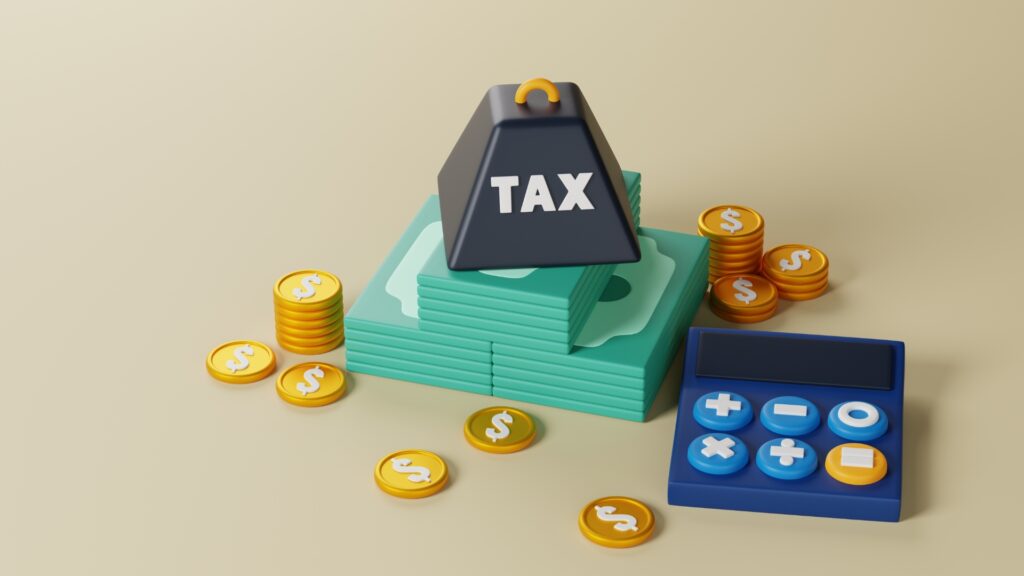Navigating the world of Non-Fungible Tokens (NFTs) can be an exciting yet complex journey, especially when it comes to understanding the tax implications involved. As a digital asset that has taken the art and technology world by storm, NFTs have raised questions about how they are taxed and what that means for creators, buyers, and sellers. In this article, I’ll delve into the key aspects of NFT taxation, shedding light on the essential information you need to know to stay compliant and informed in this evolving landscape.
From capital gains to sales tax, the realm of NFT taxation is multifaceted and requires a nuanced understanding to navigate effectively. As someone interested in the world of NFTs, grasping the tax implications is crucial for making informed decisions and ensuring financial responsibility. Join me as we uncover the intricacies of NFT tax implications and equip ourselves with the knowledge needed to thrive in this innovative space.
Understanding NFT Tax Implications
Exploring the world of NFTs unveils a realm full of exciting opportunities and unique challenges. When delving into the realm of Non-Fungible Tokens (NFTs), it’s crucial to grasp the associated tax implications. Navigating the tax landscape of NFTs requires a deep understanding of how transactions within this digital ecosystem are treated from a tax perspective. Let’s dive into the essential aspects of NFT taxation to shed light on its complexities and ensure compliance with regulatory requirements.
- Capital Gains Tax: NFTs are subject to capital gains tax, similar to other investments like stocks or real estate. When you sell an NFT for a profit, the capital gains tax applies to the difference between the selling price and the purchase price. Understanding the nuances of capital gains taxation is pivotal for accurately reporting your NFT transactions and avoiding potential penalties.
- Sales Tax Considerations: Depending on your jurisdiction, sales tax may also apply to NFT transactions. It’s essential to be aware of the sales tax regulations in your area to determine whether your NFT sales are subject to taxation. Consulting with a tax professional can help clarify any uncertainties regarding sales tax obligations related to your NFT activities.
- Income Tax Implications: Income generated from NFTs, whether through sales, royalties, or other means, is typically taxable. The income derived from NFT-related activities should be reported accurately during tax filings to comply with the law. Keeping detailed records of your NFT transactions and earnings is crucial for proper income tax reporting.
- Long-Term vs. Short-Term Holdings: The duration for which you hold an NFT can impact the tax treatment of any gains. Long-term holdings (held for more than a year) may qualify for lower capital gains tax rates compared to short-term holdings. Understanding the distinction between long-term and short-term holdings can influence your tax planning strategies when dealing with NFTs.
By familiarizing yourself with the tax implications of NFT transactions, you empower yourself to make informed decisions and ensure compliance with tax laws. Stay informed about the evolving regulatory landscape surrounding NFT taxation to navigate this digital ecosystem effectively and maximize the benefits of your NFT endeavors.
How NFT Sales Are Taxed
When it comes to NFTs, it’s essential to consider the tax implications to comply with regulations and optimize financial outcomes. Let’s delve into how NFT sales are taxed.
Capital Gains Tax on NFTs
Profits from selling NFTs are subject to capital gains tax. Calculated based on the difference between the purchase price and the selling price, this tax is crucial for NFT holders to factor into their financial planning. It’s important to accurately report these gains to ensure compliance with tax laws.
Income Tax on NFTs
Income generated from NFT activities, including sales and royalties, is typically taxable. It’s vital to report this income accurately to the tax authorities. Understanding the tax implications of NFT-related income is key to avoiding potential penalties and staying compliant with tax regulations.
Tax Reporting Requirements for NFT Transactions
Understanding the tax reporting requirements for Non-Fungible Token (NFT) transactions is crucial for creators, buyers, and sellers to ensure compliance with tax laws. Here are key aspects to consider:
- Capital Gains Tax: When selling NFTs, profits made are subject to capital gains tax. This tax is calculated based on the difference between the purchase price and the selling price of the NFT.
- Sales Tax Regulations: It’s essential to be aware of sales tax regulations that may vary based on the jurisdiction where the transaction takes place. Understanding and complying with these regulations is vital to avoid penalties.
- Taxation of NFT Income: Income generated from NFT activities, whether through sales or royalties, is typically taxable. It’s important to accurately report this income to ensure compliance with tax laws.
- Duration of NFT Holdings: The duration for which an individual holds an NFT can impact tax treatment. Long-term holdings may qualify for lower capital gains tax rates compared to short-term holdings.
By understanding and adhering to these tax reporting requirements, individuals engaging in NFT transactions can navigate the complexities of NFT taxation effectively, make informed decisions, and ensure compliance with tax regulations.
Key Considerations for NFT Investors
Exploring NFT investments involves navigating a realm with unique tax considerations that demand attention. As an NFT investor myself, I’ve uncovered essential factors to digest:
- Capital Gains Tax Implications: When I sell NFTs for a profit, I’m aware that such earnings are subject to capital gains tax. Calculated from the variance between the buying and selling price, this tax is a crucial aspect to factor into my investment strategy.
- Sales Tax Variations: Understanding the variance in sales tax regulations across different jurisdictions is vital. It’s critical for me to comprehend the specific tax requirements in the locations where I conduct NFT transactions to ensure compliance.
- Taxable Income Determination: Whether obtained through NFT sales or royalties, the income generated is usually taxable. I make sure to accurately report all revenue from my NFT activities to uphold compliance with tax laws.
- Impact of Holding Duration: Long-term or short-term holding of NFTs can influence tax treatments significantly. Being mindful of the duration of my NFT holdings allows me to potentially benefit from lower capital gains tax rates.
- Compliance with Reporting Requirements: Adhering to tax reporting obligations is non-negotiable. Ensuring that I accurately report profits from NFT sales, considering the distinctive tax treatment for each transaction, is essential to avoid penalties and maintain compliance.
By assimilating these key considerations into my investment approach, I optimize my NFT activities, make informed decisions, and steer clear of potential tax-related pitfalls in this evolving digital landscape.

 Jack Hogan is a seasoned author at The Digi Chain Exchange, where he specializes in delivering insightful articles on blockchain technology, cryptocurrency trends, and digital finance. With a strong background in fintech and a passion for decentralized systems, Jack simplifies complex concepts, making them accessible to readers of all levels. His engaging content covers everything from the latest market movements to innovative blockchain applications, ensuring that The Digi Chain Exchange remains a go-to resource for anyone navigating the digital economy. Jack’s work reflects his commitment to educating and empowering the crypto community.
Jack Hogan is a seasoned author at The Digi Chain Exchange, where he specializes in delivering insightful articles on blockchain technology, cryptocurrency trends, and digital finance. With a strong background in fintech and a passion for decentralized systems, Jack simplifies complex concepts, making them accessible to readers of all levels. His engaging content covers everything from the latest market movements to innovative blockchain applications, ensuring that The Digi Chain Exchange remains a go-to resource for anyone navigating the digital economy. Jack’s work reflects his commitment to educating and empowering the crypto community.

